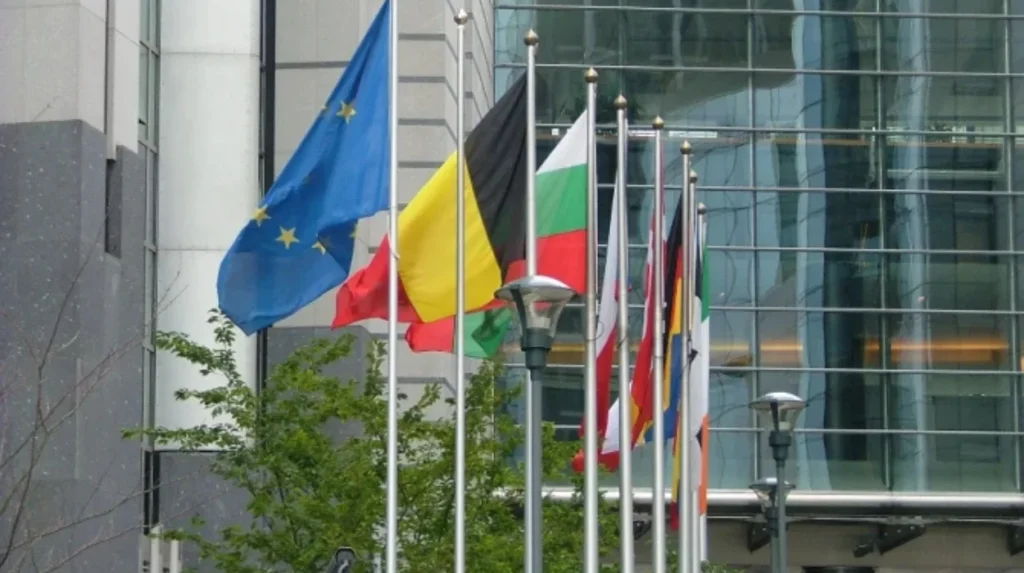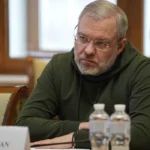The escalating debate over abortion rights and religious influence in the European Union has taken a new turn as a prominent Christian human rights organization publicly disputes allegations of extremism leveled against it and similar groups in a recent EU abortion lobby report. The challenge centers on a controversial document issued by the European Parliamentary Forum for Sexual and Reproductive Rights (EPF), which accuses Christian pro-life organizations of aligning with so-called “religious extremism” to obstruct reproductive rights in Europe.
Background of the EU Abortion Lobby Report
In late June 2025, the EPF released “The Next Wave: How Religious Extremism Is Reclaiming Power,” a report asserting that a growing coalition of religiously motivated groups has infiltrated European politics. The document identifies an emerging alliance between conservative Christian organizations, far-right populists, and oligarchic funding sources, asserting this nexus actively campaigns against sexual and reproductive rights, particularly abortion access.
The EPF’s report arrives amid ongoing controversies over abortion legislation and the influence of ideological lobbying within EU institutions. The forum itself is a network of European parliamentarians and advocacy groups dedicated to promoting sexual and reproductive health and rights (SRHR) policies, funded predominantly by foundations and public donors supporting these causes.Such claims sparked immediate backlash from affected groups.
Christian Rights Group Responds: Allegations Are Unfounded
The Alliance Defending Freedom (ADF) International, a leading Christian human rights entity with advocacy reach throughout Europe, issued a strong rebuttal. Felix Böllmann, ADF International’s European advocacy director, described the EPF report as
“a thinly veiled attempt to silence ideological opponents under the guise of academic research.”
He criticized the organization for operating as a “well-funded activist network” rather than a neutral body, highlighting that the EPF receives nearly 3 million euros annually from donors including the Bill & Melinda Gates Foundation, George Soros’ Open Society Foundations, and pharmaceutical companies.
Böllmann contended that the EPF’s labeling of groups like ADF and Polish Ordo Iuris as “extremist” is based not on objective EU anti-terrorism criteria, which focus strictly on violence, but on ideological grounds because these groups question the framework of sexual and reproductive rights as construed by the EPF. He characterized the tactics used against pro-life organizations as a “5D strategy”: Disrobe, Disarm, Dislocate, Demonetize, and Defend, aimed at stripping these voices of legitimacy, financial support, and public debate access.
This sentiment was echoed by other Christian legal advocacy groups such as the European Centre for Law and Justice (ECLJ), whose director Grégor Puppinck called the report “strongly biased” and accused it of mixing unrelated facts to justify the EPF’s agenda. Puppinck underscored historical ties between the EPF and organizations like the International Planned Parenthood Federation (IPPF), emphasizing a legacy rooted in controversial reproductive policies.
Accusations of Hypocrisy and Funding Transparency
ADF and allied organizations pointed to what they see as glaring hypocrisy in the EPF’s accusations of opaque, “dark money” funding. Böllmann noted that while the EPF condemns conservative Christian groups for their alleged undisclosed financial backing, it itself relies heavily on large, ideologically driven donations lacking transparency.
MEP Bert-Jan Ruissen, representing the European Christian Political Party (ECPP) and SGP in the European Parliament, vocalized similar criticisms. He stated,
“Organisations committed to protecting every life, including unborn life, are unfairly labeled as dangerous extremists. It is hypocritical for EPF’s leadership to omit its own extensive funding from donors such as Bill Gates and George Soros while targeting us.”
Ruissen affirmed his commitment to continue “being the voice of the unborn” despite such attempts to marginalize pro-life advocates.
Political and Social Context: Religious Influence and Lobbying in the EU
The controversy highlights a broader clash over sexual and reproductive rights versus religious freedom and pro-family values across the EU. The EPF report catalogs a sizable funding ecosystem supporting anti-gender and anti-abortion movements estimated at over $1 billion over five years, spread across hundreds of organizations predominantly based in Europe but also with substantial funding from Russia and the United States.
This financial muscle has allowed Christian and conservative groups to move beyond grassroots activism to wield significant lobbying influence in the European Parliament. The report warns that they have transitioned from the political margins to established institutional power, actively reshaping policies on family, gender, and reproductive legislation.
The report is explicit in its criticism of countries like Hungary, where religious conservatism has been adopted as state policy under Prime Minister Viktor Orbán. It also evokes comparisons between various pro-family political actors and populist leaders such as Donald Trump and Vladimir Putin, suggesting a coordinated effort to undermine progressive sexual rights.
Counterclaims on the Strategic Use of “Extremism” Label
Critics of the EPF report argue that the term “religious extremism” is deliberately vague and weaponized to silence legitimate dissent in a democratic society. Böllmann stressed that the report conflates financial and ideological support for traditional family values with violent extremism, which is inconsistent with legal and EU anti-terrorism standards.
Paul Coleman of ADF International accused the EPF of trying to “block Christian and conservative voices from engaging in important public debates” and described the report as a political tool rather than objective scholarship. This sentiment was shared by MEPs aligned with Christian democratic parties who lament what they see as an oppressive campaign against religious freedom and pro-life advocacy under the pretext of defending women’s rights.
Implications for EU Policy and Public Discourse
This dispute over abortion lobby influence and religious extremism presents a dilemma for EU institutions tasked with balancing diverse views on sexual and reproductive rights while respecting freedom of expression and religion. The sharp polarization reflected in this debate risks deepening divisions within the Parliament and among member states.
The use of the term “extremism” in policy and advocacy reports remains contentious, with far-reaching consequences for funding, public legitimacy, and access to policymaking processes. As these organizations continue to lobby vigorously, the question of transparency, accountability, and ideological bias in EU advocacy circles gains renewed importance.
The Christian rights groups’ challenge to the EU abortion lobby report’s extremism claims sheds light on the complexities behind ideological conflicts in European governance. While the EPF frames its work as protecting sexual and reproductive freedoms, its critics paint it as an activist entity seeking to marginalize conservative values through loaded accusations. This ongoing struggle underscores the enduring tension between competing visions of human rights, religious liberty, and political influence within the EU.







